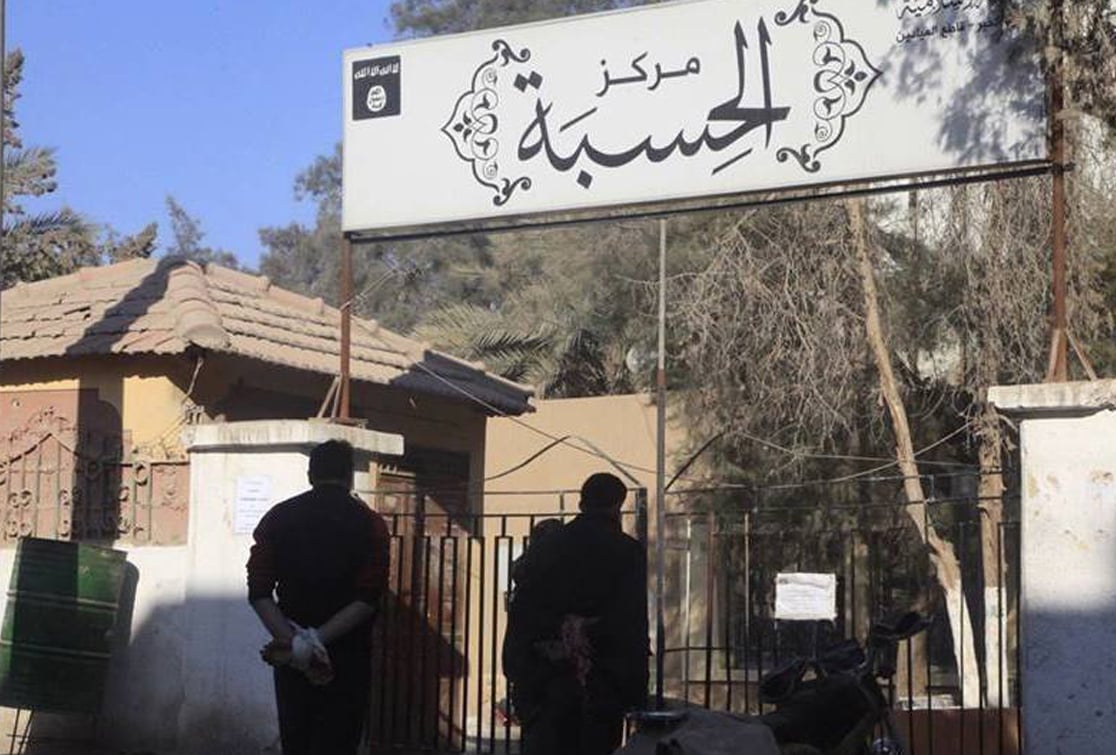
SNHR issued ”The Black Bottom” report regarding ISIL’s torture and detention centers in Syria.
The report stated that ISIL had established secret or public detention centers in regions that are under its control to detain thousands of residents. Prisoners were incarcerated due to different accusations. Most of the times, criticizing ISIL’s oppressive policies was considered the main reason for arrests or abductions. Hence, the civil society and all popular movements were oppressed. To ISIL members or cadres, as long as people are abiding to their religious terms and not criticizing their ruling, then they can live peacefully under ISIL’s terms of living.
The report assured that ISIL has emerged due to decades of political conflicts and not just Islamic extremism. ISIL’s phenomena remain a complex one that cannot be limited to Jihadists or Salafists.
The report depended on SNHR daily documentation since 2011. They communicated with survivors from ISIL’s detention centers and with local residents and activists who live nearby those prisons. SNHR either met the eyewitnesses or residents or interviewed them via Skype or the phone.
SNHR team were not able to record all of ISIL’s detention centers or prisons, especially their secret ones. ISIL had resorted to secret jails after the international coalition commenced its airstrikes on Syria on 23 September 2014. They recorded the arrest of not less than 6318 individuals including 713 children and 647 women since ISIL was established on 9 April 2013 and up till 31 January 2016. They also estimated the enforced disappearance of more than 1188 individuals including 411 children and 87 women since 9 April 2014 and up till March 2016.The report was able to monitor 19 detention centers including some prisons, detailed as follows: Al Raqqa Governorate: 8 detention centers, Deir Al Zour Governorate: 6 detention centers, and Aleppo Governorate with 5 detention centers. While it estimated that ISIL has not less than 54 detention centers.
SNHR affirmed that ISIL had committed, beyond reasonable doubt, widespread violations against the international human rights law and the right of the people in the areas under its control, through arbitrary arrests, torture, and the application of the unjust provisions. Also, similar acts were made against the armed opposition groups, prisoners from the Kurdish Democratic Union Party, and governmental forces. All those acts constitute war crimes under the International Humanitarian Law.
The report stated that ISIL exercised, within the detention centers of systematic torture, in the context of the large-scale in various areas controlled by them. The amount of crimes against humanity, and that some of the torture operations have ethnic and sectarian dimensions. Sometimes ISIL resorted to deforming the detainees’ bodies after execution orders.
The report recommended the international coalition forces that is led by the United State and the Russian forces to pay special attention to the detainees in ISIL prisons and all other different prisons and avoid committing the same mistakes that were made before, and to acquire information from SNHR’s report to protect the civilians who live under ISIL’s control
It also demanded the international community to provide all methods of support to Human Rights group in documenting the violations that are being committed by the extremist organization, and reveal their false allegations before the public opinion in Syria, and to build their capacity through substantial training and developing.
Finally, it indicated that the organization of ISIL was founded on 9 April 2013, two years and one month after the eruption of the popular protests that demanded political and economic reform. If the international community had supported popular protests, there would have been no existence to ISIL or Al Nussra Front, and that they cannot eliminate extremism and terrorism as long as political tyranny of the Assad regime exists.




